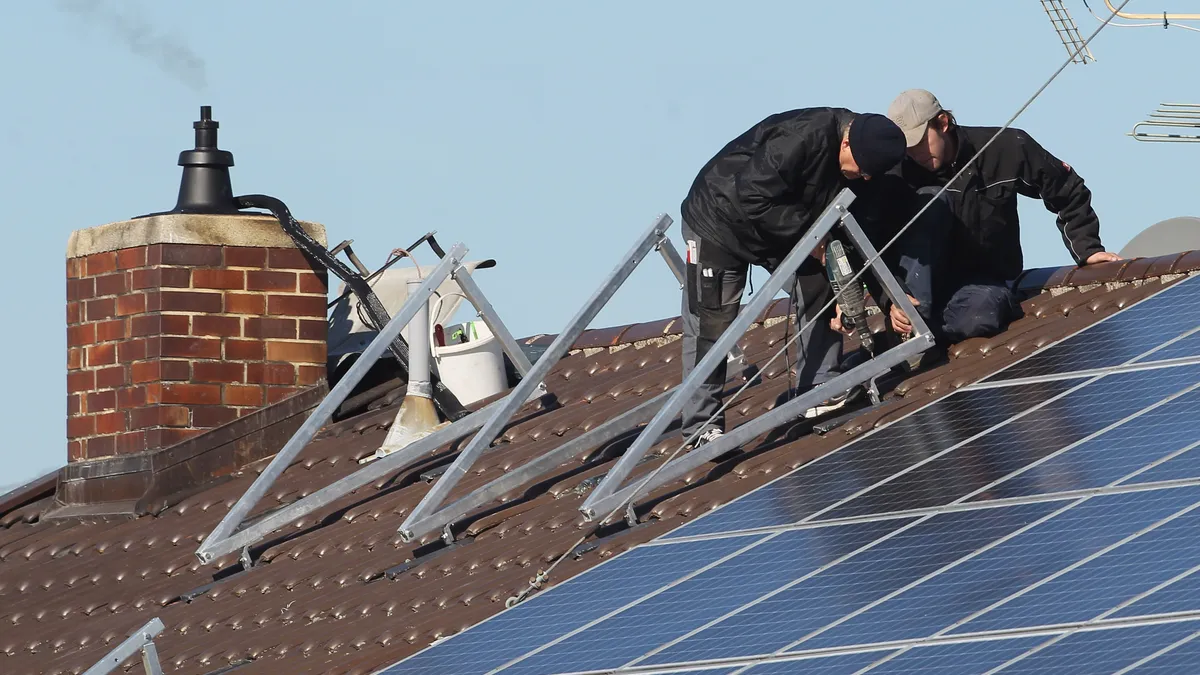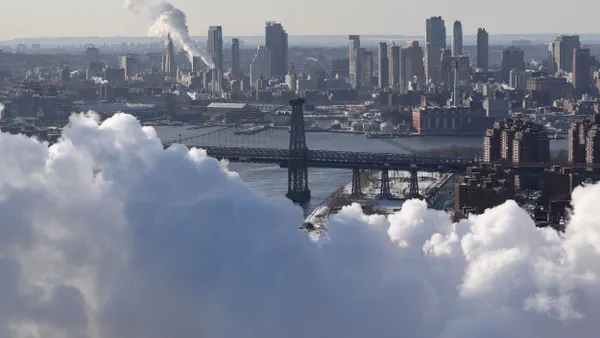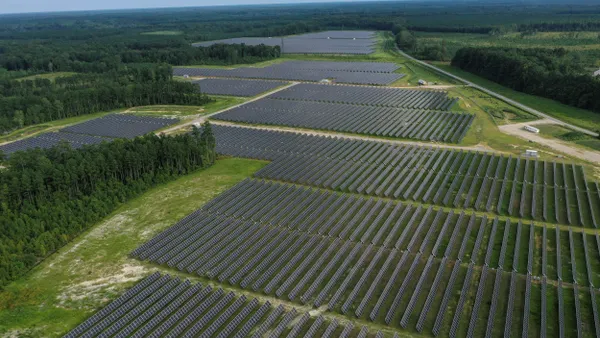Dive Brief:
- The shutdown of Silicon Valley Bank by California regulators over the weekend has led to logistical questions about the fate of the renewables startups and projects it financed – particularly residential and community solar.
- The federal government acted to fully protect the bank’s depositors and provide access to their funds by Monday, but SVB’s collapse means that companies that used the bank to finance projects will have to secure funding elsewhere.
- Several solar companies said that they either had little exposure to SVB or were satisfied by the government’s promises to make them whole, but CEO Kiran Bhatraju of Arcadia – the largest domestic manager of community solar – said the bank’s collapse will “have an impact on the broader industry.”
Dive Insight:
Bhatraju said in a comment that SVB was a “trusted partner” for climate tech companies and provided construction, long-term and short-term debt to nearly 60% of the community solar industry.
“Of course other financiers will fill the gap because these are some of the best infrastructure projects in America, but pipelines will be in flux for some time as those new relationships get sorted out and due diligence processes get underway,” he said.
Arcadia “moved quickly” and removed most of its funds from SVB, Bhatraju said.
Solar power system provider Sunrun’s CEO Mary Powell said in a comment that the company had less than $80 million in deposits at SVB and was “pleased” that the government had acted to ensure its access to them.
“Sunrun has long-standing banking relationships with a large number of financial institutions, and we remain confident in our ability to replace SVB's undrawn commitments,” she said.
SVB is also a lender in Sunrun’s “parent $600 million recourse credit facility,” the company said in a statement to investors, and represents less than 15% of the company’s interest rate hedging facilities. Still, Sunrun doesn’t expect “material exposure” as a result.
Community solar company Nautilus Solar Energy said in a comment that it is not affected by the bank’s collapse, but extended support to “those in our industry negatively impacted.” Residential solar company Sunnova said its exposure was immaterial and limited to the bank being a lender to one of its warehouse facilities.
Pavel Molchanov, a renewable energy research analyst at Raymond James, said in an email he believes the banking industry’s “strong appetite” for solar and other renewable energy projects because of the “low risk involved” will ensure that other lenders step in to fill SVB’s role in the market.
“The more substantive issue for project developers in recent months has been the cost of capital, which of course has risen along with higher benchmark interest rates,” Molchanov said. “Plenty of cash is available, just at a higher cost.”
Rising interest rates and SVB’s collapse come during an uncertain time for the solar industry – demand for solar projects is high as investors take advantage of tax credits in the Inflation Reduction Act, but supply of solar panels is constrained by factors such as the Uyghur Forced Labor Prevention Act. Solar installations declined 16% in 2022, and analysts expect a rebound in 2023 but say it will depend on several unpredictable factors.
Alex Hobson, the senior vice president for communications at the American Council on Renewable Energy, said in an email it’s “too early to fully understand the scope of [SVB’s] collapse” but that the situation was “concerning for all parties involved.”
“Financing must continue to flow in the clean energy sector to meet our collective climate goals; we cannot afford to slow the renewable energy transition,” she said.
Correction: We have corrected our description of Sunrun. They are a solar power provider.















